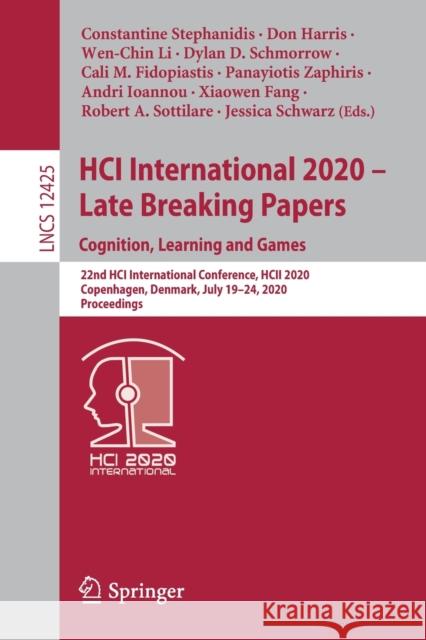Hci International 2020 - Late Breaking Papers: Cognition, Learning and Games: 22nd Hci International Conference, Hcii 2020, Copenhagen, Denmark, July » książka
topmenu
Hci International 2020 - Late Breaking Papers: Cognition, Learning and Games: 22nd Hci International Conference, Hcii 2020, Copenhagen, Denmark, July
ISBN-13: 9783030601270 / Angielski / Miękka / 2020 / 776 str.
Hci International 2020 - Late Breaking Papers: Cognition, Learning and Games: 22nd Hci International Conference, Hcii 2020, Copenhagen, Denmark, July
ISBN-13: 9783030601270 / Angielski / Miękka / 2020 / 776 str.
cena 403,47
(netto: 384,26 VAT: 5%)
Najniższa cena z 30 dni: 385,52
(netto: 384,26 VAT: 5%)
Najniższa cena z 30 dni: 385,52
Termin realizacji zamówienia:
ok. 22 dni roboczych.
ok. 22 dni roboczych.
Darmowa dostawa!
Kategorie:
Kategorie BISAC:
Wydawca:
Springer
Język:
Angielski
ISBN-13:
9783030601270
Rok wydania:
2020
Wydanie:
2020
Ilość stron:
776
Waga:
1.09 kg
Wymiary:
23.39 x 15.6 x 4.04
Oprawa:
Miękka
Wolumenów:
01
Dodatkowe informacje:
Wydanie ilustrowane











